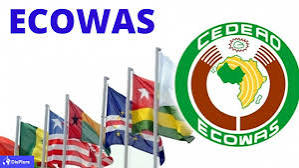The Exit of AES Countries from ECOWAS Commission: The Myth and Danger of Misinformation and Fake News
By Raymond Enoch
In a dramatic shift in West Africa’s political landscape, the recent exit of Mali, Burkina Faso, and Niger—collectively known as the Alliance of Sahel States (AES)—from the Economic Community of West African States (ECOWAS) has sparked intense debates, speculations, and, alarmingly, a flood of misinformation. While the move signals deeper fractures in regional integration, the role of fake news in shaping public perception and policy responses cannot be overlooked.

On January 29, 2025, the three AES nations jointly announced their withdrawal from ECOWAS, citing the regional bloc’s perceived inefficiency and its sanctions against their military-led governments. This decision, which they framed as a step towards sovereignty and self-determination, has fueled geopolitical uncertainty in West Africa. However, beyond the official statements, misinformation has thrived, distorting facts, creating panic, and deepening divisions.
The Myth of a United Anti-Western Bloc
One of the most persistent myths surrounding the AES exit is that the three countries are forming a new regional bloc purely to counter Western influence. While it is true that Mali, Burkina Faso, and Niger have grown closer to Russia, China, and other non-Western powers, the narrative that their departure from ECOWAS is solely driven by anti-Western sentiment oversimplifies a complex issue.
The reality is more nuanced. The AES countries have repeatedly voiced frustration over ECOWAS sanctions, economic restrictions, and its perceived inability to address security crises. Their exit is as much about economic survival and regional security as it is about geopolitical realignments. Yet, social media and even some traditional media outlets have amplified the “anti-Western alliance” myth, fueling unnecessary tensions between the region and its international partners.
Misinformation about the AES exit has taken many forms, from exaggerated claims of immediate border closures to false reports of military mobilization against ECOWAS. Some viral posts have suggested that Nigeria is preparing for military intervention to “restore ECOWAS order,” despite official denials from Abuja. Others falsely claimed that all ECOWAS member states are imposing visa bans on citizens of Mali, Burkina Faso, and Niger.
Such fake news has real consequences. It heightens fears, creates diplomatic rifts, and stokes nationalist sentiments that could lead to conflict. In a region already struggling with terrorism, economic instability, and political unrest, misinformation is a dangerous weapon that can further destabilize an already fragile situation.
The rapid spread of fake news about the AES exit underscores the influence of social media in shaping public opinion. Platforms like Facebook, X (formerly Twitter), and WhatsApp have become battlegrounds for competing narratives, where state actors, interest groups, and even foreign influencers push their own versions of events.
A major challenge is that misinformation spreads faster than fact-checking efforts. While ECOWAS has released official statements clarifying the situation, these are often drowned out by the sheer volume of misleading content online. The lack of media literacy among many West African citizens further compounds the problem, making them more susceptible to manipulation.
Paradigm News therefore call for responsible Journalism and Fact-Checking As the region navigates the implications of the AES exit, journalists and media outlets must rise to the challenge of combating misinformation. Responsible reporting, fact-checking, and providing balanced perspectives are essential in ensuring that the public is informed, not misled.
Governments and civil society organizations must also invest in media literacy programs to help citizens discern credible information from propaganda. Additionally, ECOWAS and the AES nations should engage in open, transparent dialogue to counter speculation and misinformation with facts.
Navigating a New Regional Reality
The exit of Mali, Burkina Faso, and Niger from ECOWAS marks a significant turning point in West African politics. Whether this move will lead to greater regional instability or new economic and security opportunities remains to be seen. However, what is certain is that misinformation and fake news pose a serious threat to peace and cooperation in the region.
As West Africa grapples with this evolving situation, the need for accurate, responsible journalism and informed public discourse has never been greater. The truth, after all, remains the most powerful tool against the dangers of disinformation








